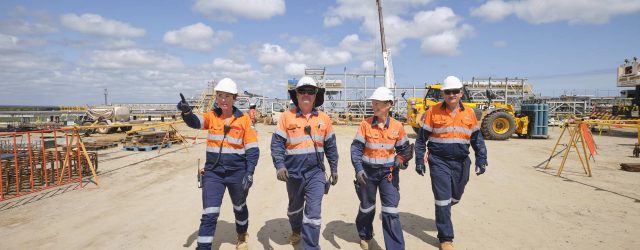All’s fair in procurement and delivery? (guest blog)
Posted: 13th June 2023
Posted in: Blog

Posted: 13th June 2023
Posted in: Blog
Australia’s construction industry is experiencing a ‘perfect storm’. The Commonwealth, State and Territory governments have made significant investment in new transport and social infrastructure to rebuild Australia’s economy after elongated COVID-19 ‘lockdowns’ in 2020 and 2021. But contractors engaged to deliver that infrastructure (and those operating in the residential sector) are burdened by escalating materials costs, supply chain pressures and skills and personnel shortages. The ‘perfect storm’ features contractor insolvencies, poor worker mental health, and heightened adversarialism. In 2020, the CEO of John Holland, Joe Barr, was quoted as saying, “We are in the midst of Australia’s biggest infrastructure boom, but as an industry, we are teetering on the brink of collapse”.
Disrupting the Australian construction industry with fairness
To avoid total “collapse”, the perfect storm must be disrupted; Australia’s construction industry must ‘play fair’. Philosopher John Rawls explored what it meant for an ordered society to be ‘just’. His view was that a just (and fair) society is one in which free and equal citizens cooperate with each other and power is legitimately used. Rawls argued that in social contracts (or the interactions between citizens) fairness was fundamental.
Rawls’ argument holds true for the Australian construction industry. A sustainable and productive construction industry depends upon its members interacting with each other fairly. Former Chief Justice of the High Court of Australia, Robert French, said, “We may find it hard to define fairness and unfairness but we know unfairness when we see it’. In the construction industry, ‘unfairness’ is onerous risk allocation (including broad ranging indemnities and ever expanding exclusions to caps on, liability) and a “race to the bottom” where project clients award contracts based on lowest price, thereby exposing delivery contractors to costs with no certainty of recovery.
In the construction industry, we endorse ‘fairness’ as the paramount guiding principle for project procurement, delivery and commercial close out. But what does this mean for each phase of a construction project?
Fairness in procurement
In procurement, fairness means clear rules of engagement, use of standard form contracts with only project specific amendments, appropriate risk allocations in those standard forms and appropriate opportunity for teams to consider risks before signing up. In the United Kingdom, in 2020, the Cabinet Office adopted a Construction Industry Playbook to improve the procurement and delivery of public works and programmes. The Playbook endorses collaborative industry engagement, and acknowledges that longer term, ‘framework’ (or alliance style) agreements and standardised contract terms simplify procurement processes. It acknowledges that, “The fundamental principle is that contracts should be profitable. Fair returns and expectations need to be reasonable for suppliers to remain interested in the market to be sustainable”. Industry’s response to “broken” transactional delivery models is ‘Project 13’, which advocates “enterprise” contracting, which contemplates risk allocation shared according to capability, commercial arrangements which provide the potential for sustainable returns and collaborative and aligned teams.
Fairness in delivery
In delivery, fairness means ‘high trust’ relationships and strong leadership. A 2018 study of the Chinese construction sector found that the severity with which a contract was enforced was informed by the complying party’s trust in the breaching party. The authors concluded that goodwill-based trust among contracting parties ‘increases confidence that the other party is pursuing mutually compatible interests’ and ‘reduces the need for contract enforcement that could cause high ex post transaction costs and conflicts between the two parties’. Project chartering is a process by which compatible interests, and aligned goals, are developed alongside a formal strategy for communicating issues. Chartering creates ‘an environment where trust and teamwork foster a collaborative relationship and facilitate the successful completion of the project’. Fostering behaviours that are consistent with achieving common goals must be the vision of the project leader. Those with leadership roles must create an environment in which people can succeed and providing the right leadership is critical. According to Rolstadås et al, “Leaders attribute success to factors other than themselves, exhibit a compelling modesty, are self-effecting and understated. When things go poorly, however, they blame themselves, taking full responsibility’.
Fairness in commercial close out
In commercial close out, fairness is evident in Australian courts’ willingness to interfere in the relationship between sophisticated contracting parties to strike down a deal that is unfair. For example, in Brighton v Multiplex Constructions Pty Ltd, the Victorian Supreme Court held that a contractual time bar cannot defeat an otherwise legitimate claim for misleading or deceptive conduct under the Australian Consumer Law. Recognising the changing approach of the courts to contractual time bars, Justice Riordan said:
It is not consistent with the public purpose of the ACL to leave claimants uncertain about whether courts, on a case by case basis, will determine contracted time limits to be so unreasonable as to be unenforceable.
In giving this ruling, the Court prioritised public policy (constituted by the need for certainty as to contractual rights and protecting those in trade and commerce from being misled or deceived).
Closing comments
If in all that we do and all that we aspire to achieve in the construction industry we hold out fairness as an agreed essential element and a test by which we measure our actions, we will create a positive environment in which the construction industry will thrive. Our success – or failure – in doing so depends upon all industry players embracing fairness as their guiding mantra and adopting the types of behaviours canvassed in this paper.